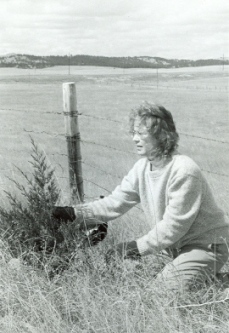 Recently I contributed to the local Empty Bowls project, and I urge everyone to do so. This project helps feed hungry children in the local area– including my hometown of Hermosa. The project that helps local folks the most is the BackPack Program, which provides bags of nutritious and easy-to-prepare food for children who otherwise would not get enough to eat on the weekend. Nationwide, this 15-year-old program feeds more than 450,000 children on weekends.
Recently I contributed to the local Empty Bowls project, and I urge everyone to do so. This project helps feed hungry children in the local area– including my hometown of Hermosa. The project that helps local folks the most is the BackPack Program, which provides bags of nutritious and easy-to-prepare food for children who otherwise would not get enough to eat on the weekend. Nationwide, this 15-year-old program feeds more than 450,000 children on weekends.
Proper nutrition is critical to a child’s development mentally and physically; hunger reduces academic achievement and even future economic prosperity. A hungry child will never achieve full potential. In the U.S. today, 15 million children are hungry– that’s one in five. Contribute locally to improve the future of our nation.
My contribution this year was modest: I painted a bowl that will be part of the Celebrity Auction at the local Empty Bowls event.

My painted bowl, which proves that I am no artist, will be sold at silent auction along with a signed copy of my most popular book, Windbreak: A Woman Rancher on the Northern Plains, at the Empty Bowls luncheon March 23 at the Surbeck Center at the S.D. School of Mines. This photograph was taken before the bowl was fired, so the colors should be more vivid.
In 2009, at the invitation of Ruby Wilson, I drove to Brookings, S.D., for an Empty Bowls fundraiser sponsored by the United Church of Christ, to benefit Heifer International. (Heifer International is one of my favorite charitable organizations, and yes, they give cows to people to help them become self-supporting– also pigs, chickens, turkeys and other critters that translate into more long-term help than one meal.) I read a new poem dedicated to the event, and the poem was first published on a poster advertising the fundraiser. “Those Thanksgiving Pie-Makers” subsequently appeared in my book Dirt Songs, with Twyla M. Hansen.
Here’s how you can help this year:
March 23, 2016
11-12pm, 12:30-1:30pm, 5:30-6:30pm
SDSMT Surbeck Ballroom
Leadership Rapid City Class of 2013 invites you to participate in the 4th Annual Empty Bowls Luncheon benefiting the BackPack Program of Feeding South Dakota.
Empty Bowls is an international project to fight hunger. The premise of the Empty Bowls Project is straightforward. Patrons are served a simple meal of soup and bread. At the end of the event, guests choose a ceramic bowl (crafted by artists and community participants) to keep. The Empty Bowls are a reminder of the many bowls we have filled, and the bowls we still need to fill to provide nourishment and food to the hungry.
Empty Bowls began in Michigan in the spring of 1991. Due to the tremendous success of the project and the work of thousands of participants, Empty Bowls projects now occur many times throughout the year, all over the world, raising millions of dollars to fight hunger.
There are many different ways to get involved and participate in the message of the Empty Bowls Luncheon. Here are just a few ways to help make this event a success:
Become an Empty Bowls Sponsor. Consider sponsoring the Empty Bowls Luncheon as a business, a local organization, or as an individual. Various levels are available from a BackPack Buddy Partner of $150 to a major sponsorship of $10,000. We would love to partner with your business or organization!
Create and Donate a Bowl. You don’t have to be a professional artist to participate! Leadership Rapid City and Feeding South Dakota have teamed up with Pottery 2 Paint so that individuals and groups of all ages and skill levels can take part and share in the fun. Individuals can paint a bowl and purchase at ticket to the luncheon for just $15!
More than 21 million children qualify for free or reduced-price meals through the National School Lunch Program and the National School Breakfast Program. For many of these children, school meals may be the only meals they eat. What happens when they go home over the weekend?
For more than 15 years, the Feeding America BackPack Program has been helping children get the nutritious and easy-to-prepare food they need to get enough to eat on the weekends. Today, bags of food are assembled at more than 160 local food banks and then distributed to more than 450,000 children at the end of the week. With your help, we can provide more food to more children in need.
* * *
I was just informed of another fine event to help the Hermosa BackPack Program:
Linda M. Hasselstrom
Windbreak House Writing Retreats
Hermosa, South Dakota
# # #
For more information:
http://www.feedingamerica.org/
For information on the Rapid City event:
http://www.feedingsouthdakota.org/news-events/events/rapid-city-empty-bowls/
For the history of the Empty Bowls program:
https://en.wikipedia.org/wiki/Empty_Bowls
To learn more about Heifer International:
http://www.heifer.org/










